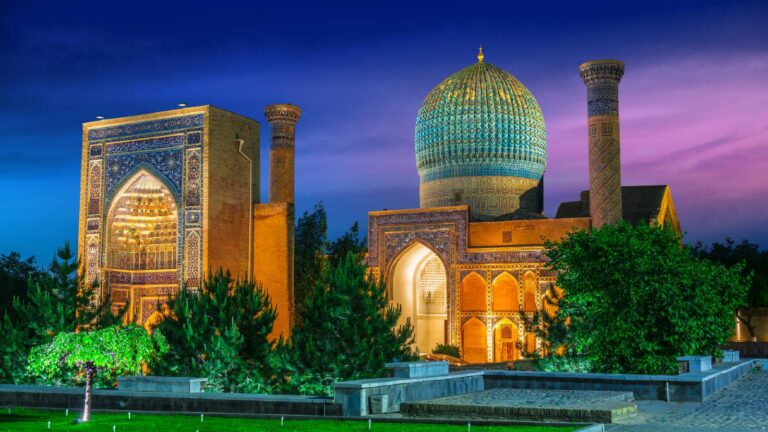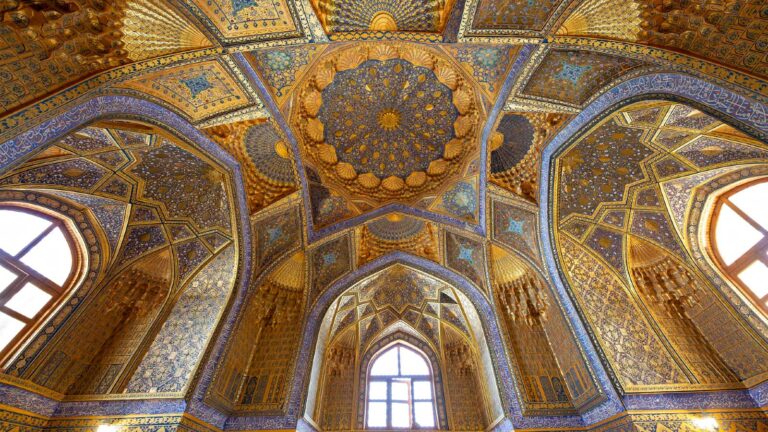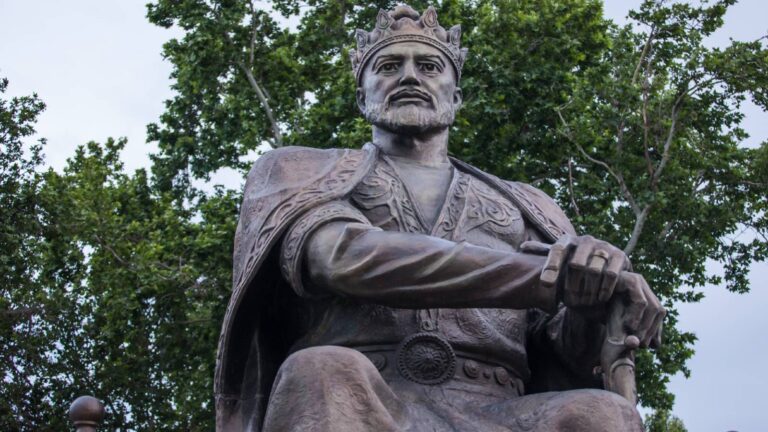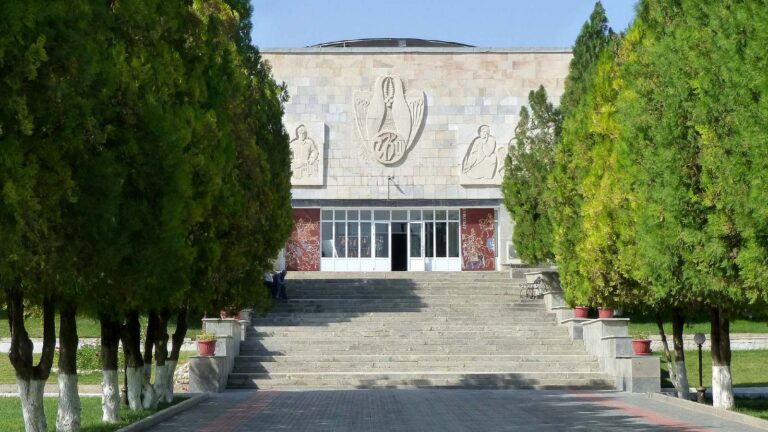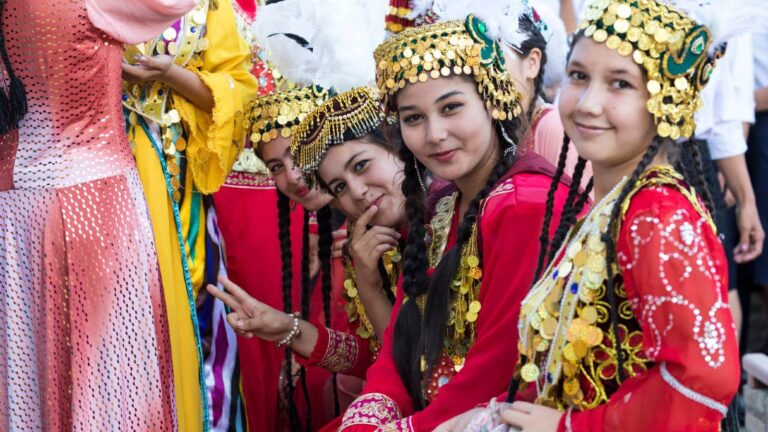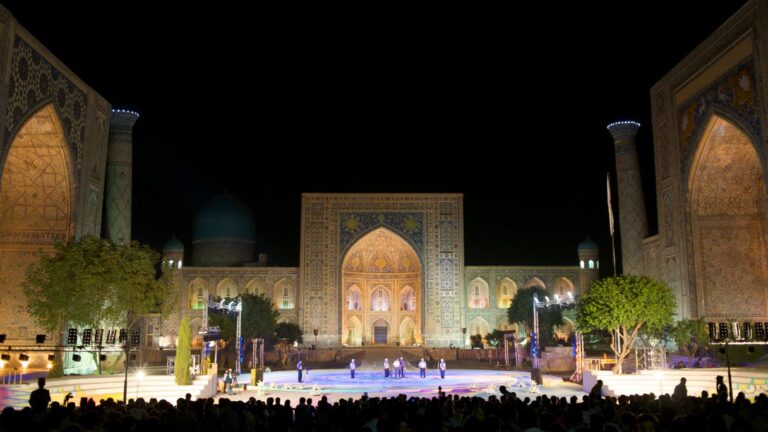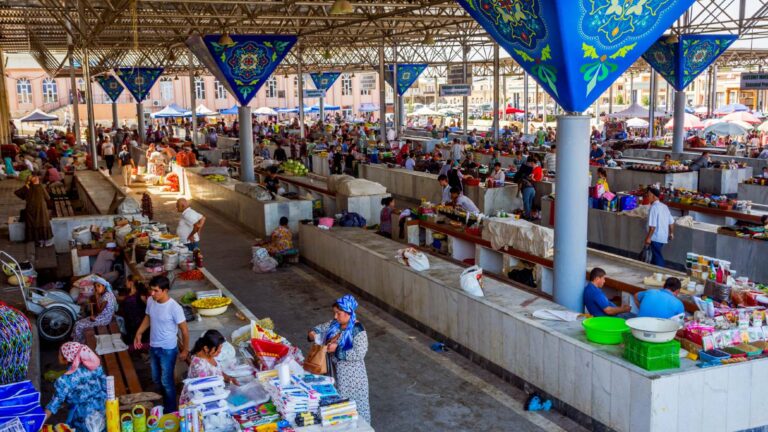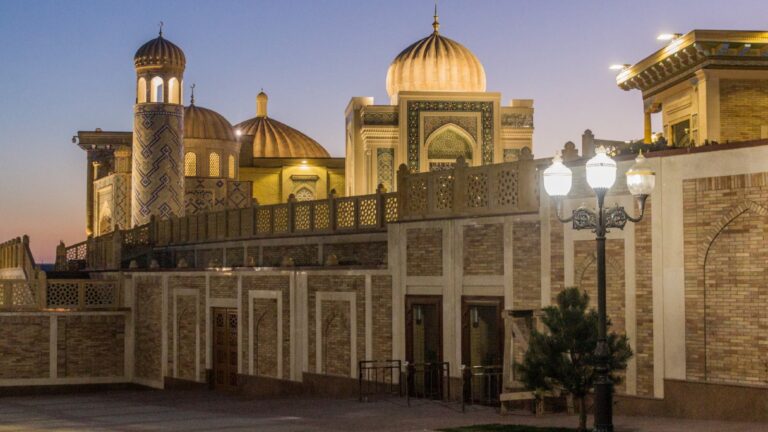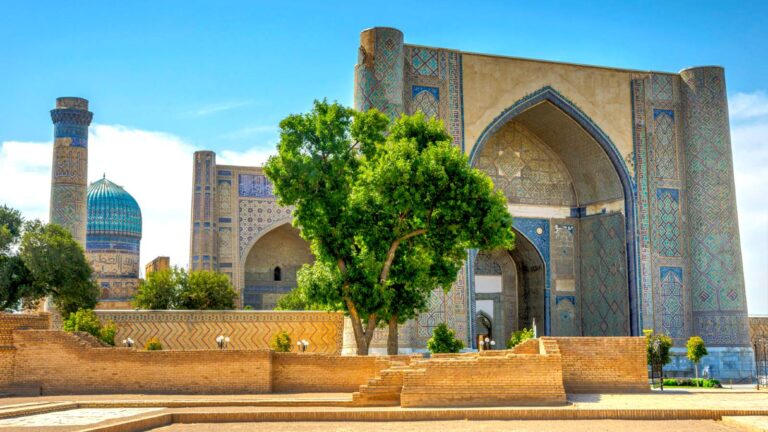Getting There
The Jewish mahalla of Samarkand was considered an independent part of the city. Mahalla was led by a representative of Central Asian Jews, who bore the title “Kalontar” (Oldest in translation from the Hebrew-Tajik language). As a rule, Jews of high reputation and respect, with a religious education, were appointed to the post of kalontar. The mahalla had its own community center, where there were a central synagogue, heder schools, hammam, sartaroshkhanu, teahouse, various craft workshops, such as workshops and shops of dyers, shoemakers, weavers, a small market with all the necessary goods. Most of the rabbis and other religious leaders of the Jews lived in this mahalla, the bulk of Jewish merchants and rich people, most of the most famous Jewish craftsmen, Jewish poets such as Zabehoi Samarkandi, Rasibi Samarkandi, singers and musicians. Until the beginning of the 20th century, more than 30 synagogues existed on the territory of the Jewish mahalla, and in general in Samarkand itself.
The Jewish mahalla is located in the eastern part of the historical center of Samarkand. At the beginning of the 20th century, the Jewish mahalla of Samarkand bordered on the mahallas of Chakardiz, Shahkash, Changhavli, Obimashkhad, Mubarak and Imam Vose, where Tajiks mainly lived, and with the mahalla of Dzhugikhan, where the Jughi (Central Asian) Gypsies lived. Nowadays, the territory of the former large Jewish mahalla can be roughly shown as follows: the western border of the mahalla runs along the southern part of Islam Karimov Street (until 2017 it was called Tashkent Street), the eastern border runs along Gijduvan Street, the southern border runs along Vabkent Street, and the northern border along Shakhi-Zinda street.
270 kilometers from Tashkent to Samarkand. In Tashkent, you can travel to Samarkand by train, by car or bus, and by air. The average cost of going by bus and car is $ 8-10. The average cost of a train ride by rail is $ 12-15. The average cost of air travel by air is $ 120-150.
What to Expect
Since the 1970s, a massive repatriation of Jews from different parts of the vast country began in the USSR. Central Asia is no exception. Leaving Jews sold their homes to local Samarkand Tajiks from neighboring makhallas and from the rest of the city, and by the end of the 1990s, the ethnic composition of the huge makhalla had changed dramatically – Tajiks became the majority, but several dozen families of Central Asian Jews still lived in the makhalla.
In the 2000s, half of them also immigrated to Israel, some left for the USA, Canada and Western Europe, Australia. Nowadays, only a few families of Central Asian Jews live in the once huge Jewish mahalla of Samarkand, mostly of quite adult and elderly age (no more than 50 people), there is one synagogue “Kanesoi Gumbaz” (one of the two currently operating synagogues throughout Samarkand), and is functioning one Jewish hammam “Hammami Davudi”.
At present, the once large Jewish mahalla of the city is administratively divided into several mahallas. Nowadays, several of the numerous streets and streets in this historic mahalla bear the names of famous Samarkand Jews who lived in this mahalla. Currently, on the Jewish mahalla, some historic old houses have been turned into hostels and guesthouses (guest houses) for numerous tourists visiting Samarkand.
Every year on the eve of some holidays, birthdays or deaths, most of the Jews who left this mahalla for Israel, the USA, Canada, Australia and Europe and their descendants come to Samarkand, to their mahalla, and they must visit their home, where locals now live. Samarkand people.
Since February 2018, Uzbekistan has canceled the visa regime for Israeli citizens, and since February 2019, for all countries of Europe, Canada, Australia, it has been simplified to obtain a visa for US citizens. A large number of Jewish tourists regularly come to Uzbekistan, and in particular to Samarkand and Bukhara.
History
Every year on the eve of some holidays, birthdays or deaths, most of the Jews who left this mahalla for Israel, the USA, Canada, Australia and Europe and their descendants come to Samarkand, to their mahalla, and they must visit their home, where locals now live. Samarkand people. Since February 2018, Uzbekistan has canceled the visa regime for Israeli citizens, and since February 2019, for all countries of Europe, Canada, Australia, it has been simplified to obtain a visa for US citizens. A large number of Jewish tourists regularly come to Uzbekistan, and in particular to Samarkand and Bukhara.
Facilities Available
next to the field: Samarkand city department of public education, statues of famous Uzbek folk poets, place of view, national cuisine, Rashid Temurov Museum, and market.

